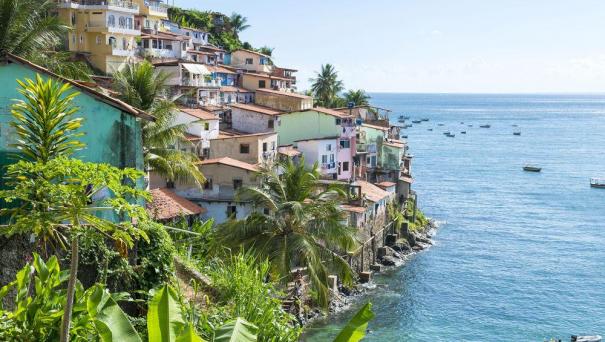About Salvador
Founded in 1549, Salvador was the capital in the heyday of the slave trade. The legacy remains today in its large black population, and the resulting culture in many ways outshines the rest of Brazil; in music, many of the greatest names from the mid-20th century to the present hail from Salvador, such as Dorival Caymmi, Gilberto Gil, and Caetano Veloso. In literature, the late Jorge Amado was also from the region. It's a vibrant, exciting city, and its people are quite friendly. A 100m cliff runs along the entire bayshore, dividing the city into Cidade Alta, up on the cliff, and the Cidade Baixa down by the bay. The former features Pelourinho, the old city center that packs historical sites, colonial architecture, museums, restaurants, bars, hostels, artisanal shops, and music/dance/capoeira academies into a convenient, albeit tourist-swarmed, set of winding cobblestone streets. The latter features a commercial center with lots of bus traffic coming in from all over Salvador. Salvador, Brazil has a tropical climate including rainforests and lush vegetation.
